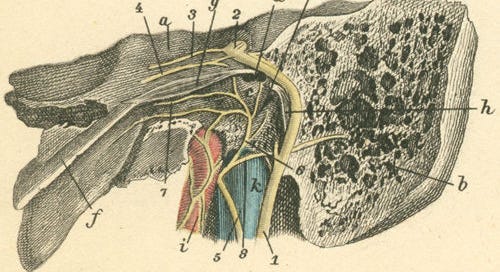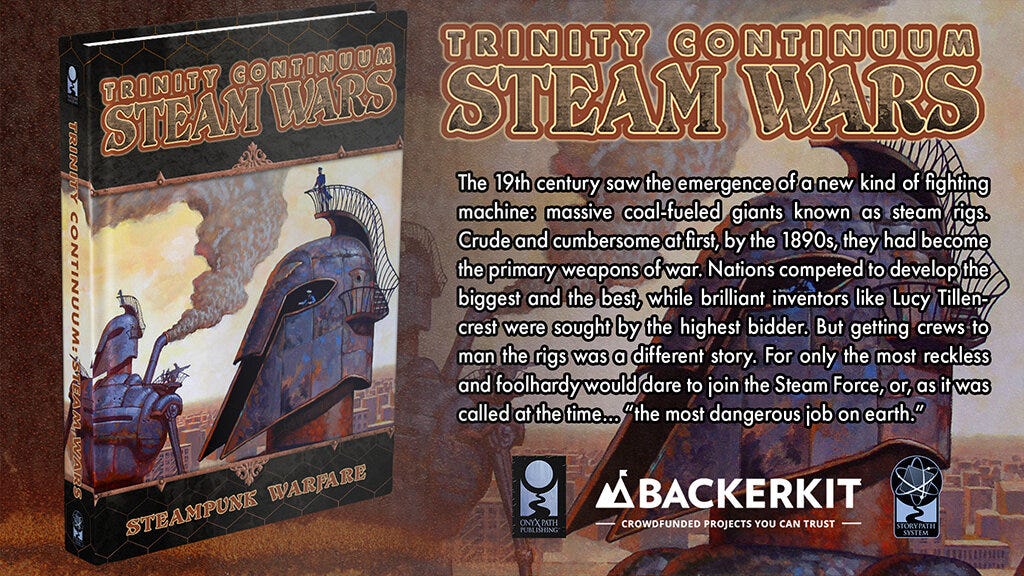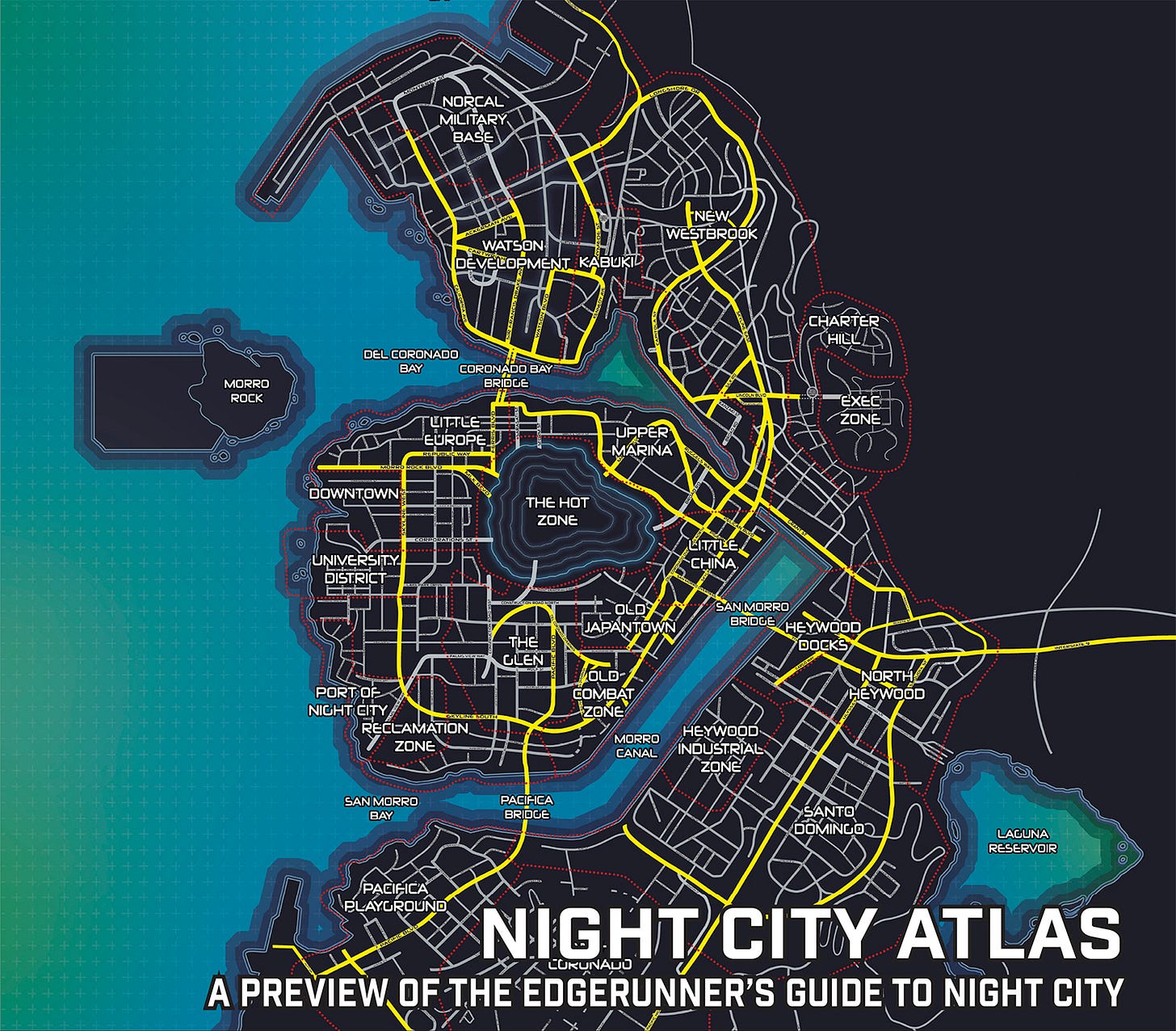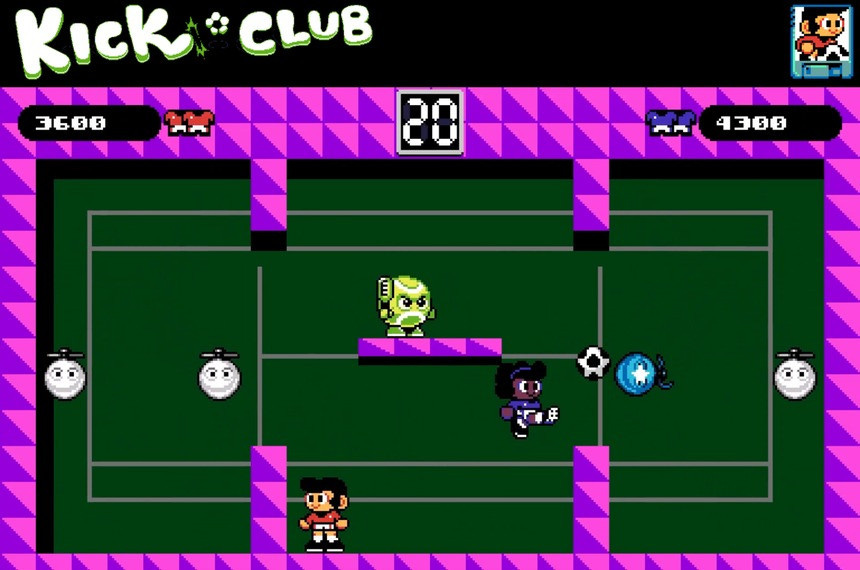Hey all! You’re getting the newsletter a few days early, because tomorrow I’m going to hospital, due to the fact that my middle ear is a bastard.
Long story short, January turned out to be a a lot of medical stuff for me, which peaked last Monday when my ENT (ear, nose, and throat) doctor suggested I needed to get surgery to address some potentially serious complications in my middle ear. As it was explained to me, this involves bone saws and skull dust, which means serious, hardcore recovery for me afterwards. All last week was a lot of anxiety, fighting with my insurance, and sorting out medical leave with my clients.
Basically, I’ll be in bed for a few days, and then I’ll be recovering for a couple of weeks. If I had a normal job, I would be completely out of work for those weeks, but because my job involves moving from my bed to my desk and not actually leaving the house, my doctor said I can do a little work once I’m able to sit upright for more than a few minutes at a time. In all reality I expect I’ll be sleeping a lot the first chunk of February, and I definitely won’t be in a good frame of mind to write a newsletter while I’m recovering. Hence why I’m writing this now, before I get a hole in my head.
I debated writing a fun rant about the differences between the US and UK healthcare systems. I might still do that next month, but to be completely honest, I’m stuck somewhere between “emotionally exhausted” and “obsessively researching my condition online,” although I do have a fun rant from December in the News section this issue. Mostly, I’m writing this because I wanted to let my readers know what’s going on if they don’t hear from me for a couple of weeks, and to share some current news.
News
Later today, another book I worked on will be crowdfunded. This time I was the co-developer on Trinity Continuum: Steam Wars! I worked with the always-amazing Matthew Dawkins to bring the steampunk warfare of Larry Blamair’s Steam Wars to the tabletop.
Here’s what I recently said on the Onyx Path Monday Meeting blog about the game.
What am I excited about? I mean, it’s giant robots fighting each other. How is that not something I would get excited about?
In more seriousness, it’s a lot more than just slamming metal fists into each other. It’s wrapped around a fascinating steampunk alternative history, and Larry has managed to pitch everything so it’s pulpy, but not too wild. It feels really lived-in and grounded for a setting about gigantic war machines. Even outside of the rigs, there are plenty of opportunities for espionage, romance, and intrigue. It’s possible to run an entire game of TC: Steam Wars where you never even step into a robot.
But why would you? It’s steam-powered robots.
It goes live later today, so click the link and check it out!
I also worked with a great team on a new Cyberpunk RED drop: The Night City Atlas.
This is a preview of the upcoming book The Edgerunner’s Guide to Night City. It’s a free download of the Night City map, along with a short PDF telling you all the key locations. Obviously you’ll see more of my work in the full book, but if you poke around Little Europe, you’ll get a taste of what I’ve been up to in 2045….
Finally, in December I wrote a long BlueSky thread about video games and growing up as a gifted kid. It’s here, but I’ll also post the text below. If you like this kind of introspective microblogging, let me know!
I've been thinking a lot about how growing up as a “gifted” kid made me bad at video games for a long time. And, to a degree, how video games helped undo some of the damage.
When I grew up in the 80s, I was put into a “gifted” program. I don't know if they have these now, or if it goes under a different name, but basically it was a special education track for mentally gifted (and, in my case, financially deprived) kids for accelerated learning.
The damage these programs ultimately did to children is relatively well-known. I don't have resources at my fingertips, but also a lot of it isn't directly relevant to my thought process, so I'll only touch on one: Gifted kids are really, really bad at failing.
That sounds like a humblebrag, but it's not. When you're constantly told how smart you are and put into a program for being smart, you're expected to be smart all the time. Which means you're steadily, systemically, indoctrinated into believing that failure is bad and to be avoided at all costs.
As a smart kid in the 80s, computers were the coming thing, so my family invested in a Commodore 64 so I could learn about computers. And naturally, I played games on the Commodore 64. Reader, the moment I couldn't immediately succeed at a game, I was furious.
I should be smart! Why isn't this thing easy when everything I'm supposed to do I have been told should be easy for me? Video games at the time (and even now) allow people to learn from failure so they do better the next time. But I had been trained to learn that failure is bad.
And then, because I was a huge fan of Douglas Adams' books, I got the Hitchhiker's Guide to the Galaxy game. A portion of the audience just got chills. For the rest of you, I should explain that the company that made it (Infocom) made hard games, and HHGttG was hard by Infocom standards.
It is an interactive fiction game, told entirely in prose, in which non-sequiturs, puns, and wordplay were part of the gameplay experience. As an example, one famous puzzle requires you to have both “tea” and “no tea” in your inventory.
So there I was, a kid who loved British sci-fi, loved computers, loved video games, and hated to lose, playing a very hard video game. For years.
To this day, I have never finished this game. I have steadfastly refused to read a walkthrough (one of the few games I'm like that for). Once a decade I boot it back up, try again, and pull my hair out. But when I was a kid, the game was humbling. I felt stupid. I felt betrayed.
Because the fact that I couldn't beat it wasn't an education, it was a humiliation. If it wasn't easy, the only logical conclusion is that I am not smart, but my entire self-identity as a child was that I was smart. This, as you can imagine, led to very complicated feelings for quite a long time.
Over time I moved to adventure games (Gabriel Knight, Sam & Max Hit the Road, and the like). Those were also hard, but over time I steadily beat them. Did I tell myself “I beat them because I learned from failure”? Oh no. Because failure is not a desirable state in my mind.
So, fast-forwarding a bit, my first game designs were awful because I didn't get this concept. Over time I intellectually understood the educational value of failure, and I understood it was important. Slowly, ever so slowly, I got the point of it, but I never respected failure.
Which leads me, quite naturally, to Kick Club.
Kick Club is one of the 50 games in UFO 50 that came out a few months ago. (Quick side note: UFO 50 IS FANTASTIC AND AN AMAZING BARGAIN.) I like a lot of the games in UFO 50. I poke at most of them once in a while, always getting a few minutes in here and there. But Kick Club got under my skin. Because, and I cannot stress this enough, I am really, really bad at Kick Club.
I have made it to around world 2-4. I don't know how many worlds there are, but I suspect I'm nowhere near halfway through. But every time I load UFO 50 (which is at least a few times a week, and sometimes daily), I will always play Kick Club. Because I finally, FINALLY actually enjoy losing.
When I lose, I go “right, that was wrong, so I'll try something else next time.” Sometimes I lose because I'm tired, sometimes I lose because I didn't pay attention. But sometimes I lose because I didn't know something. Most importantly, I am learning which kind of failure is which.
At some point I will beat this fucking game, but I've stopped approaching it with the idea that I'll sit down and beat it. Instead I think about what I can learn from playing it this time. Failure isn't a flaw; it's a chance for me to get just a tiny bit better.
It's hard to put into words how refreshing it is. After literally decades of hating failure as a concept, as a slap in the face, as an indictment of me, I actually look forward to failing. I feel like I'm finally undoing some ancient damage that's been hiding in plain sight my entire life.
Soon, I will try Hitchhiker's Guide to the Galaxy again. And I'll play to lose.
My Media
I’ve been watching Blake’s 7 for the first time, sort of. It’s not exactly the first time — I’ve watched the first couple of episodes a few times, and I watched a few others as part of a podcast discussion, but I’ve never watched the entire first series before. Last month, as a gift to myself before I started scaling down my personal spending, I got the Series 1 Blu Ray set that was recently released.
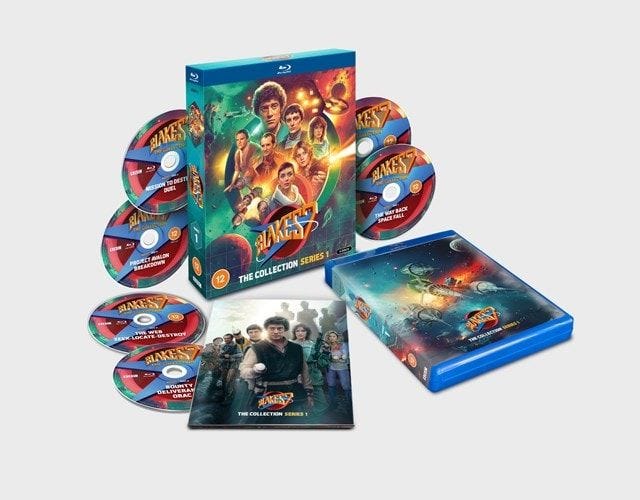
It was a bit of a gamble, but many, many, many of my friends have told me I would enjoy it, and the Blu Ray set has all-new model shots. Honestly, it was the model shots that convinced me — the restoration team didn’t just do computer CGI, but they actually built models of the ships and shot them in a very old-school style. I think that approach to physical SFX needs to be supported, which is why I got the set.
And man, watching a show about a man framed by a fascist government for the crime of speaking out and getting a group of found friends together to fight back hits really hard right about now.
Of course I love Blake’s 7. I don’t understand why I never got into the show before. Maybe because it’s a really slow burn to start, and I never really knew before that the first three episodes are the pilot, not just the first one. Maybe because somehow, impossibly, the budget for the show was even lower than that of Doctor Who at the same time. I don’t know. But this is not only a really good show, but it’s a really good show for today’s environment. A light remake that just hired new actors and updated the sets and CGI but kept the scripts largely intact would do gangbusters on a streaming service today.
Anyhow, yeah. Nearly fifty years late, but I’m here now.
Right, I’m off to prep for my medical leave. Wish me luck, and I’ll see you in March!

